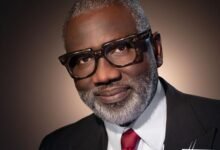MONEY
Money is in consciousness, and it must be earned. It is a subject most people are reluctant to discuss because speaking about it can attract severe criticism.
Francis Bacon gave us some valuable advice when he said, “Money is a good servant but a bad master.” In developing our desire for money, we should also seek a balance of wisdom as well; otherwise, the accumulation of wealth could distort our personality and rob us of our life.
Many years ago, George Bernard Shaw spoke out about money. He made a couple of statements that have caused numerous arguments. One, “It is the duty of every person to be rich,” and two, “It is a sin to be poor.” What thoughts do those statements stir in your mind? What is your immediate reaction? Most people would react negatively to this audacious and somehow cynical preposition by Shaw.
However, Bob Proctor advises that before we reject the statements as ridiculous, we should understand them if we are interested in earning money. Subsequently, he reviews the statements in an attempt to offer understanding of them.
One, “It is a sin to poor.” Two, “It is the duty of every person to be rich.” To properly understand what Shaw was saying, Proctor suggests, you must first have an open mind. Second, you must remain objective, and third, you will require some understanding of the natural laws of the universe. These laws are frequently referred to as “divine laws.”
One of these laws states that everything is moving. Absolutely nothing rests. You are either moving ahead in life or you are going backwards. It is grow or die. Create or disintegrate. You are becoming richer or poorer.
Now there is a second law, which is referred to in many different ways: karmic law, sowing and reaping, cause and effect, action and reaction. What you call this law is of little importance, but it is vitally important to understand how it works. The thoughts, feelings, and actions that you express in life are the seeds that you sow. The conditions, circumstances, and things that come into your life are the harvest you reap from the seeds that you sow.
Hold those thoughts for a moment while we investigate the deeper understanding of the words SINand MONEY. Sin is transgression of the law. Violating the law is a sin, and the wages of sin is death. That does not mean your heart will stop beating, but it does mean you will go backwards. Remember the law, which states that you will either be creating or disintegrating? You will grow or die. When you attempt to get without giving, you are trying to reap the harvest without sowing the seeds. It will not work. That, Proctor believes, is a sin. You will go backwards.
Now let us look at money. What is it? Money is a reward you receive for the service you render. The more valuable the service, the greater the reward. Attempting to get money without providing service is a violation of the law.
Shaw believed that we were put here on the planet to serve each other. Thinking of ways we can be of greater service will enable us to grow intellectually and spiritually. It is our duty to serve, and money is the reward we receive for that service. If a person has received their money in an unlawful manner, do not think for a second that they are on the right track. They must pay the price. You reap what you sow. You might see the money they have and the things money will buy, yet never see the price they pay. Nevertheless, they will pay it. That is the law.
Every thinking person will agree that in the light of the law, what Shaw said is correct. But that is where the problem begins for most people. They do not think, and if a person is not thinking, Shaw’s statements would appear callous, even ridiculous. Personally, Proctor believes Shaw made those statements the way he did to provoke people into thinking.
The apostle Matthew did essentially the same thing nearly 2000 years before Shaw. Matthew stated, “For to everyone who has, more will be given, and he shall have abundance, but from him who does not have, even that which he has shall be taken away” (Matthew 25:29). At first glance, that does not sound very fair. Matthew is saying that the rich will get richer and the poor poorer.
People who believe that this is unfair are people who view abundance as something that is doled out. To them, Matthew’s statements would have to appear grossly unfair. If, however, you see abundance as something one attracts, the entire picture would change, and it would be very fair. The prosperous person will be thinking prosperous thoughts and attracting more of the same, while the poor person will be thinking thoughts of lack and limitation. By law, they too will attract more of the same.
Quite simply, Shaw and Matthew were emphasizing the importance of our own responsibility in the quest for abundance. Abundance is something toward which we magnetize ourselves. We draw it into our lives. That is abundance in every aspect of life. Business associates, friends, everything we want will come into our lives by law, not lack. You are either attracting or repelling good. It is your own consciousness that ultimately determines your results.
Sam Kalenuik probably knows as much about earning money as anyone Proctor knows. “If you listen to him when he is explaining to his people how to earn a lot of money, you will not hear him talking about money. You will hear him talking about loving people, about helping people and providing service. He will talk about getting into a positive vibration; mixing with the winners, overlooking other people’s faults, and helping other people get what they want.”
Arguably, there are books that instruct you on how to manipulate markets, manipulate stocks, and people. They might even help you get money, but there is no spiritual strength there, and if there is no spiritual strength, there is no lasting happiness, no real wealth. Money should only represent a part of your abundance. If you want money, ask for abundance in all areas of your life.
You must become very comfortable with the idea of money. That may sound strange, but most people are not comfortable with money, which is why they do not have any. Listen carefully to conversations about money. Most people will apologize or give some form of justification for wanting money, if in fact they will even talk about it.
Wealthy people are aware that money is a medium of exchange, and they treat it as such. They respect it, they feel very comfortable with it, and they are quite at ease talking about it. They keep money in its proper place. They remain the master, and money remains the servant.
Mike Todd once said, “Being broke is a temporary situation. Being poor is a mental condition.” He was correct. Some wealthy people lose every penny they have through a series of mistakes and errors in judgment. That does not make them poor. They will have it all back in a short time because of their prosperity consciousness.
Study the research on poor people who win lotteries. In a short time, they have nothing left. Money cannot stay with a person who has a poverty consciousness, and by the same law, money cannot stay away from the person who possesses a prosperity consciousness.
Poor people have a poverty consciousness. Wealthy people have a prosperity consciousness. “A poverty consciousness will cause you to think and experience a lack of money. A prosperity consciousness will bring you great wealth.”
Ralph Waldo Emerson said something rich with truth when he stated, “The law of sowing and reaping is the law of laws.” Find out what other people want, and help them get it. Keep repeating your affirmations until you become truly comfortable with money. Prosperity consciousness will attract to you abundance, and abundance is your birthright.
BY CAPT SAM ADDAIH (RTD)






